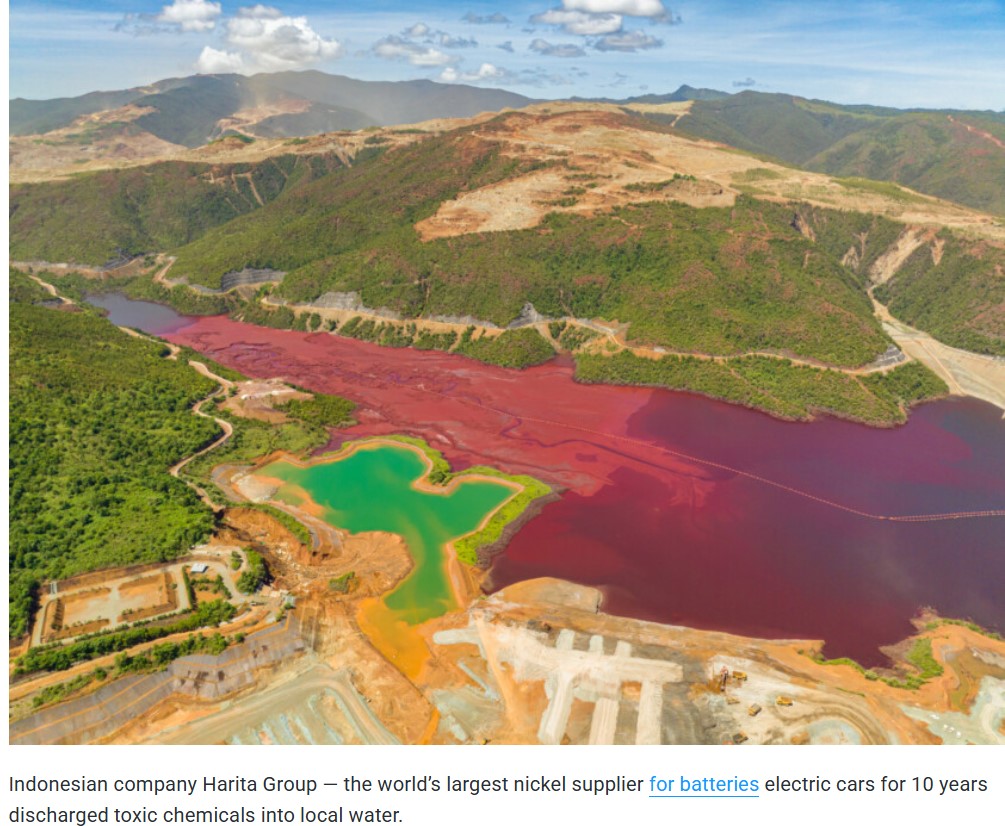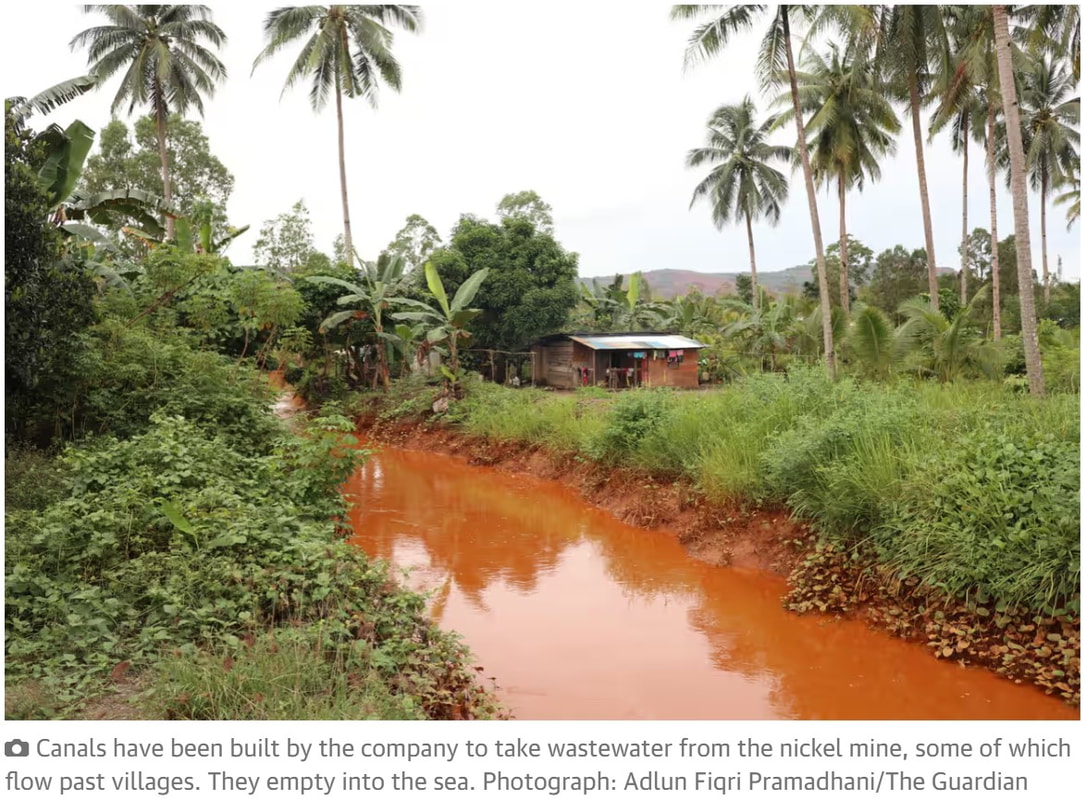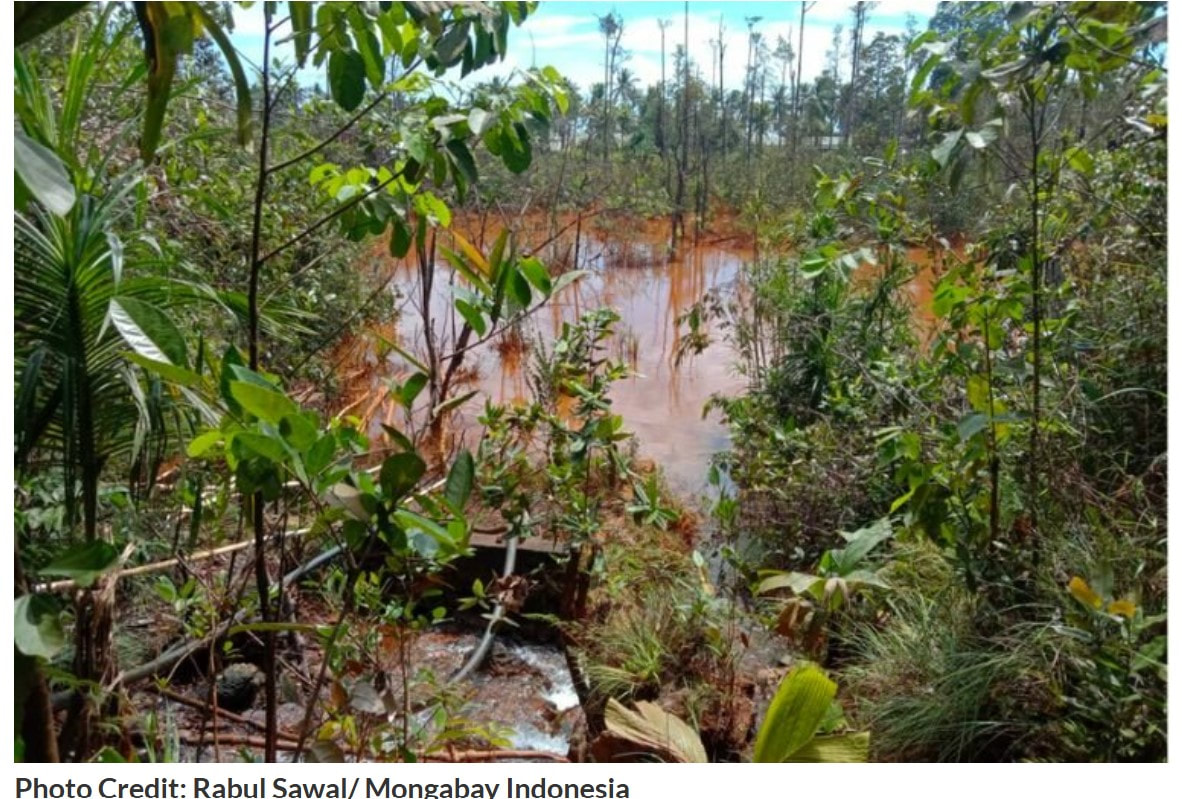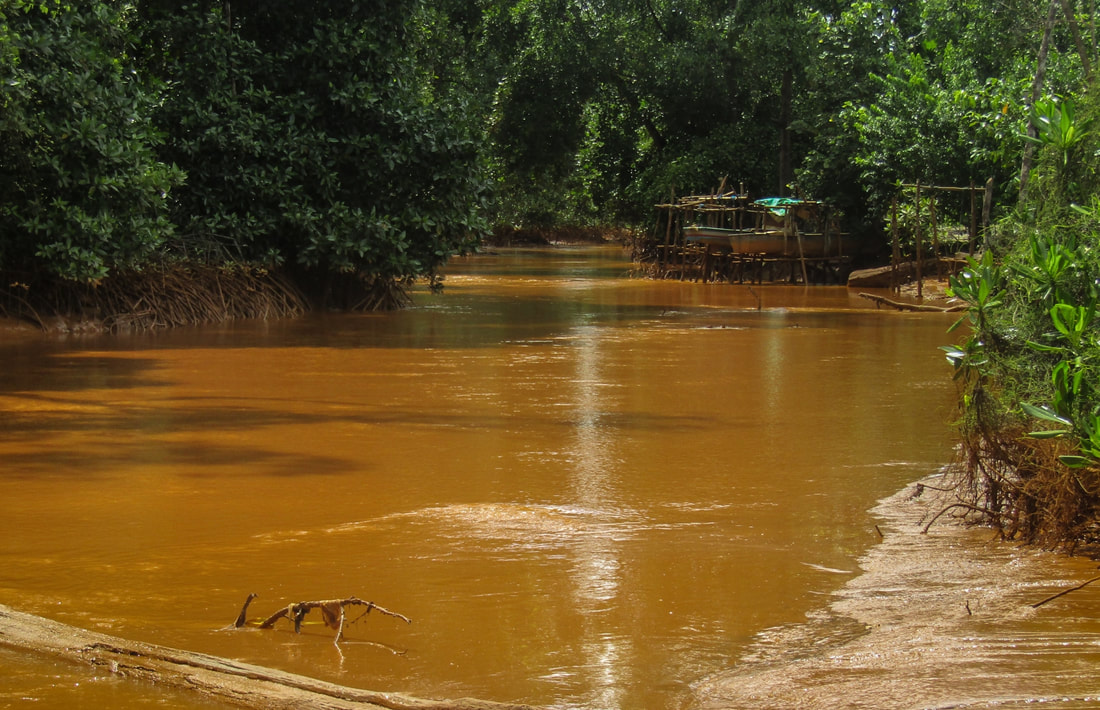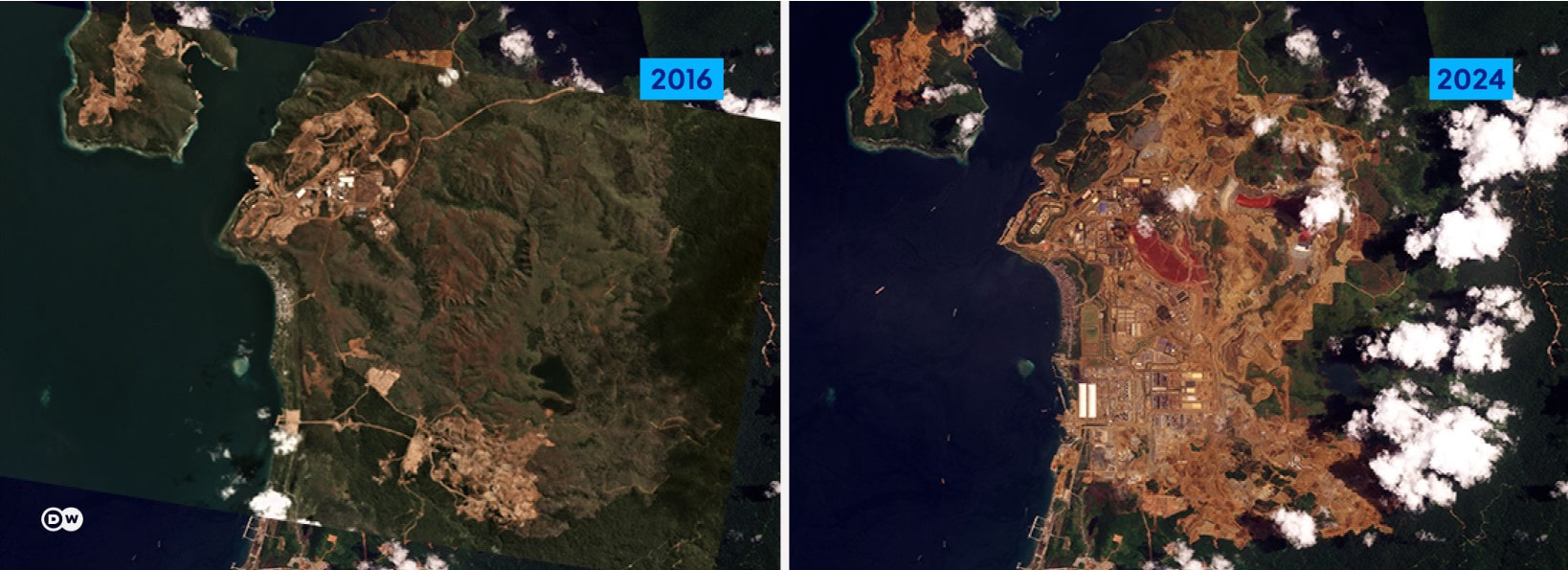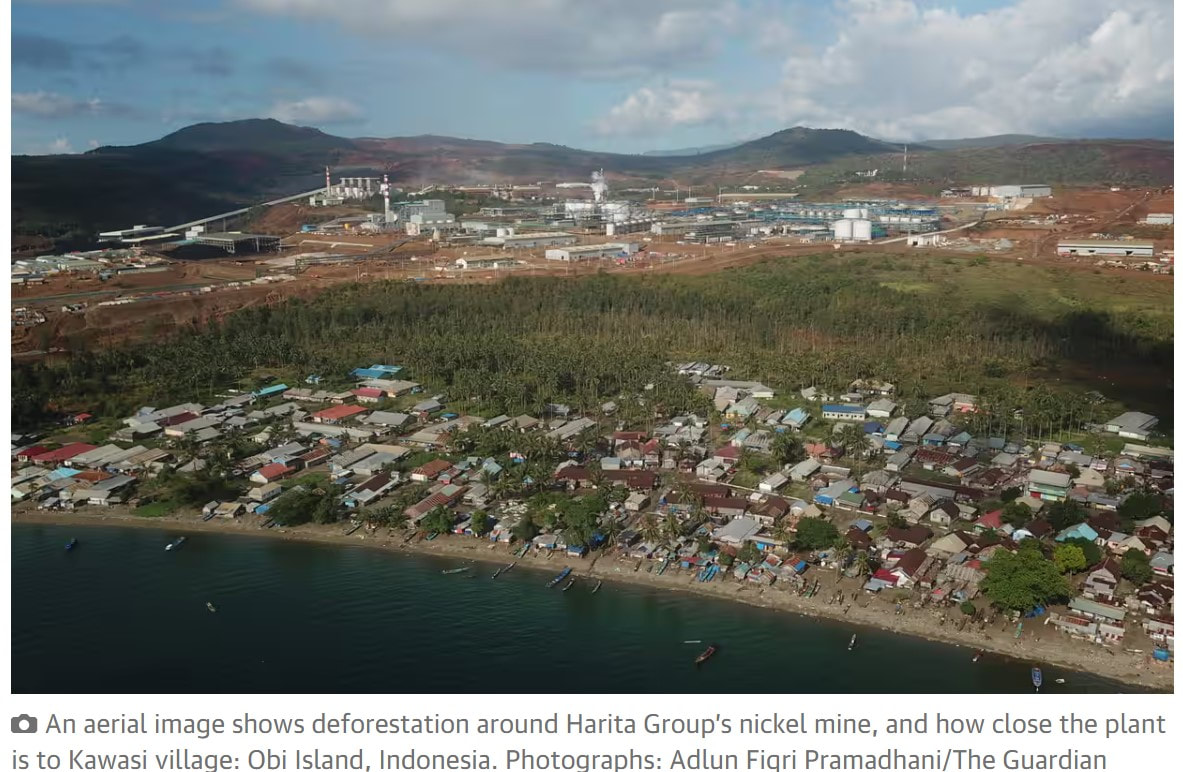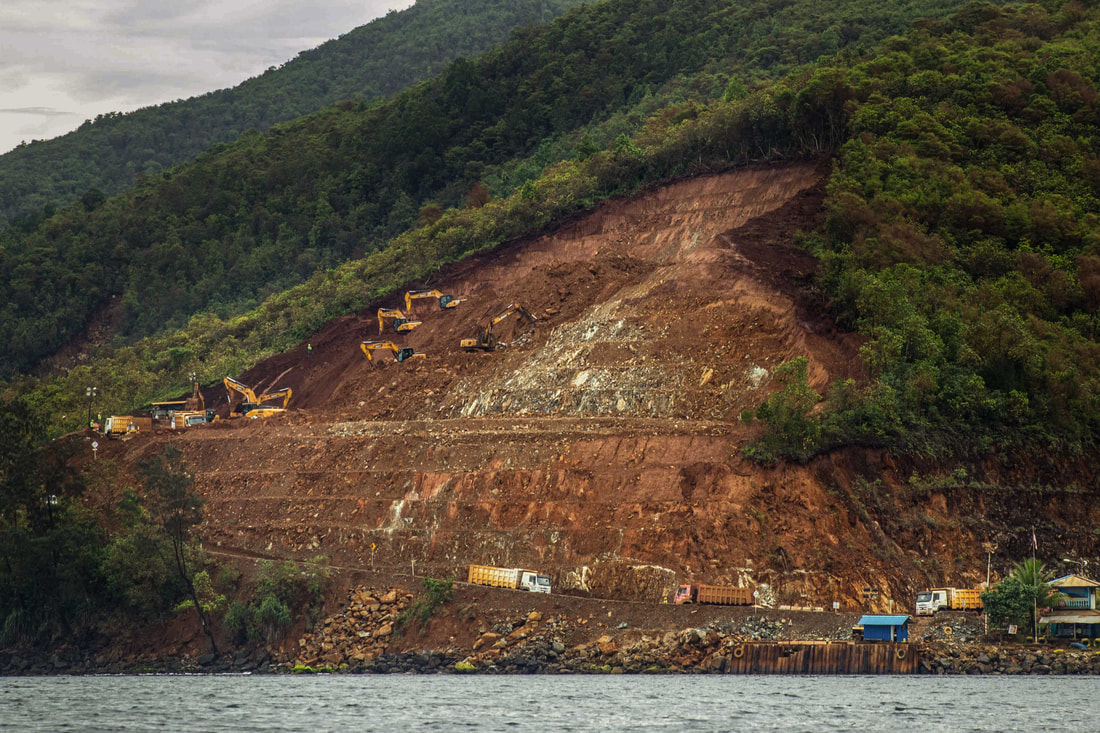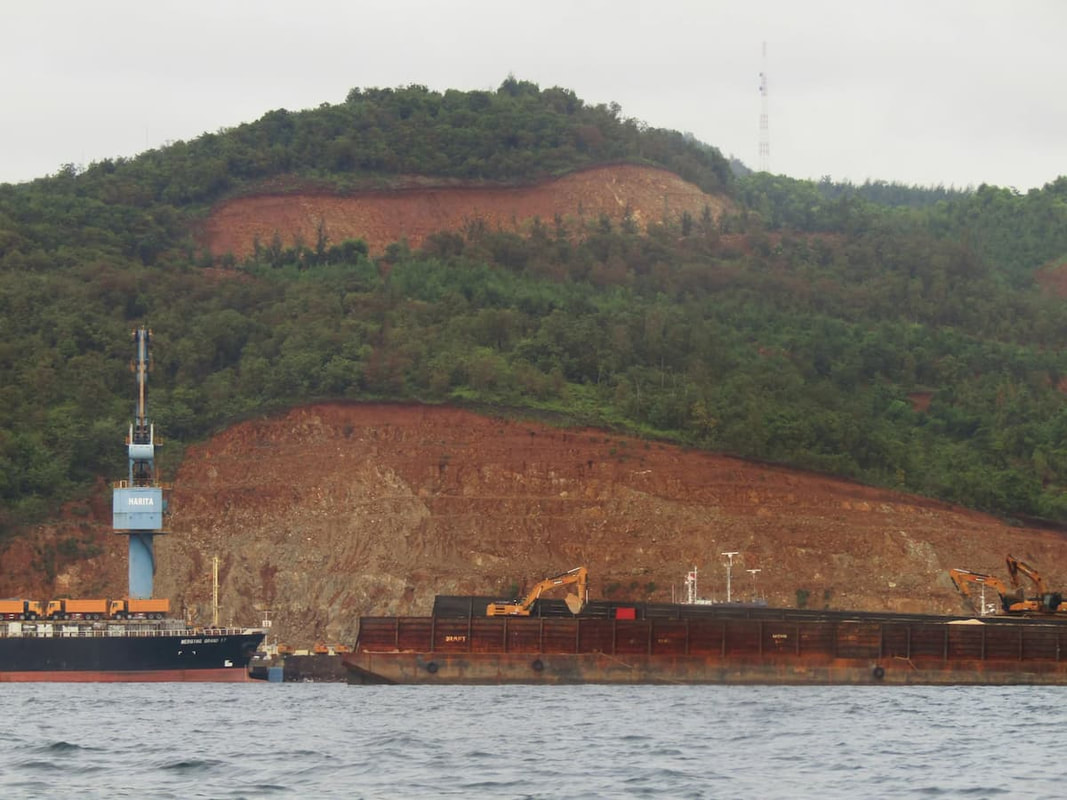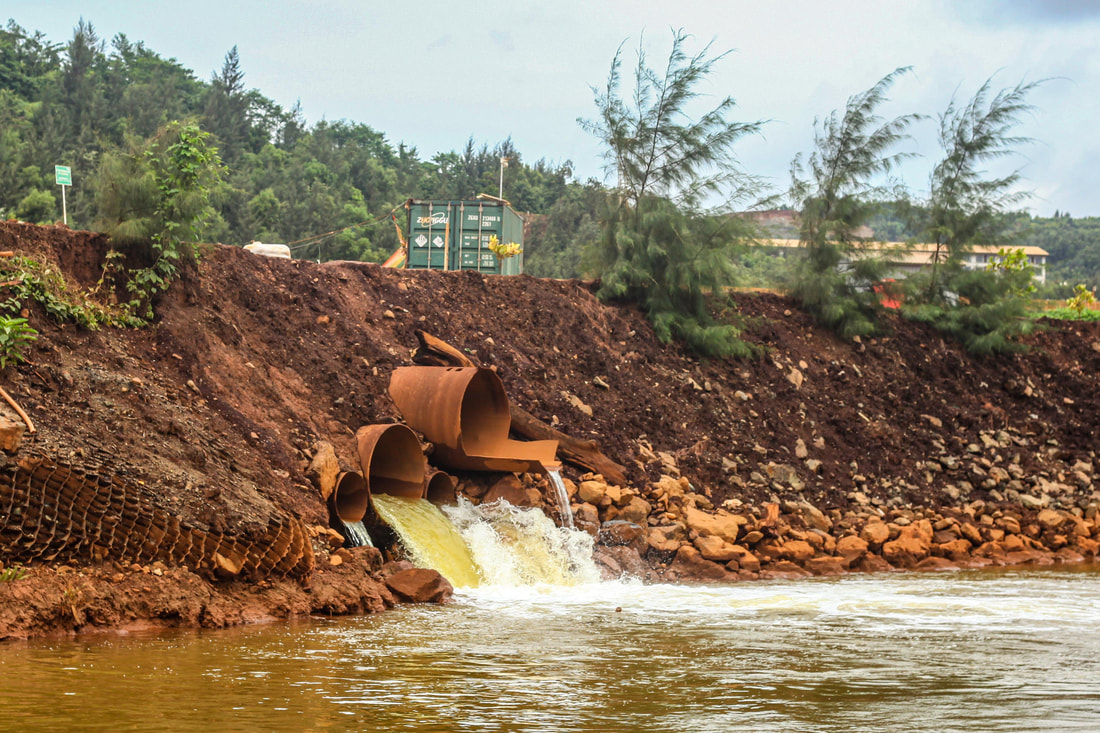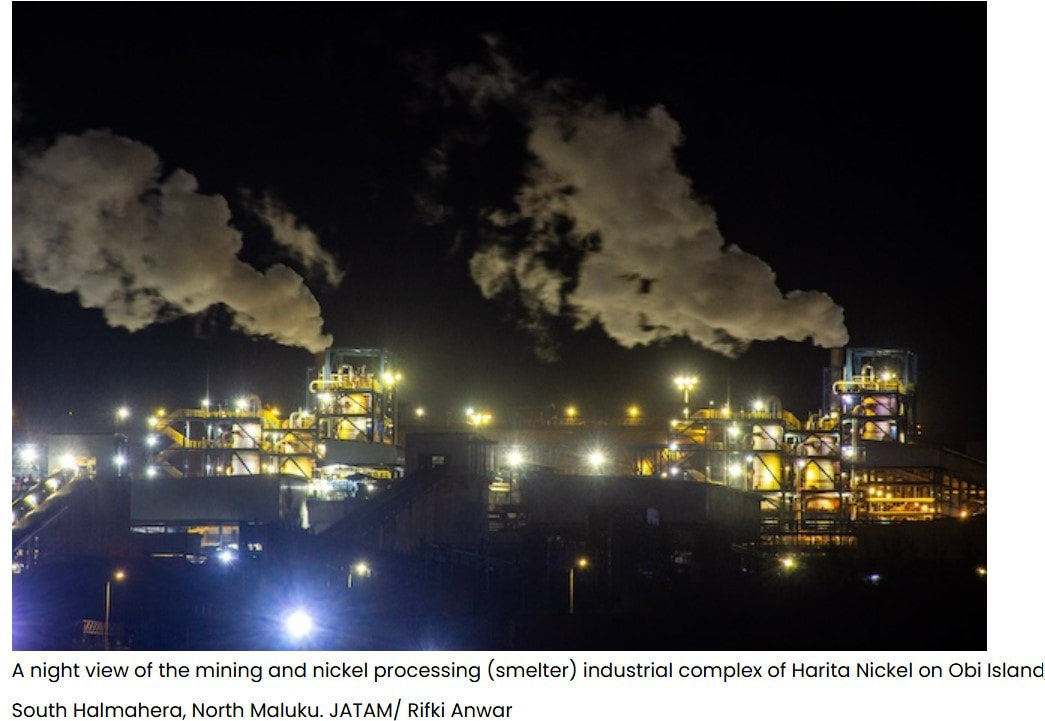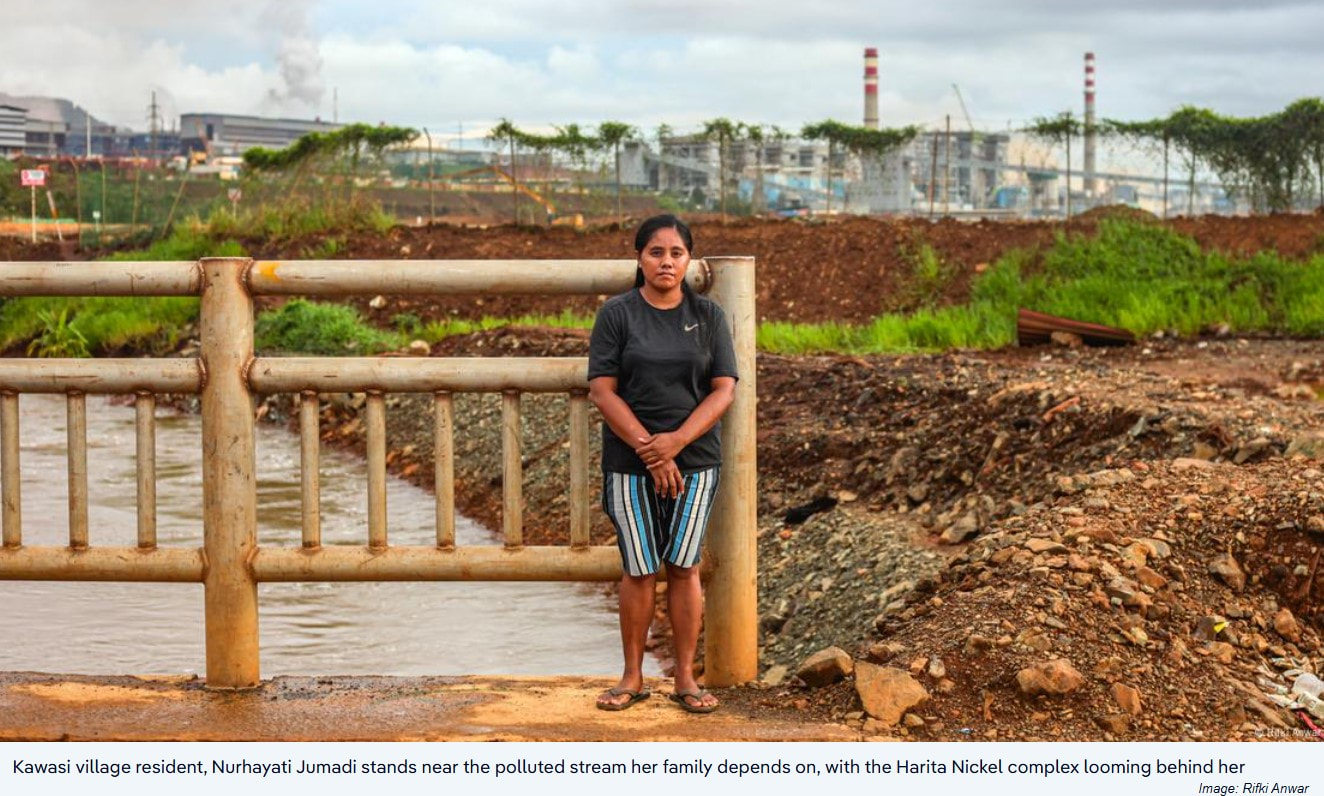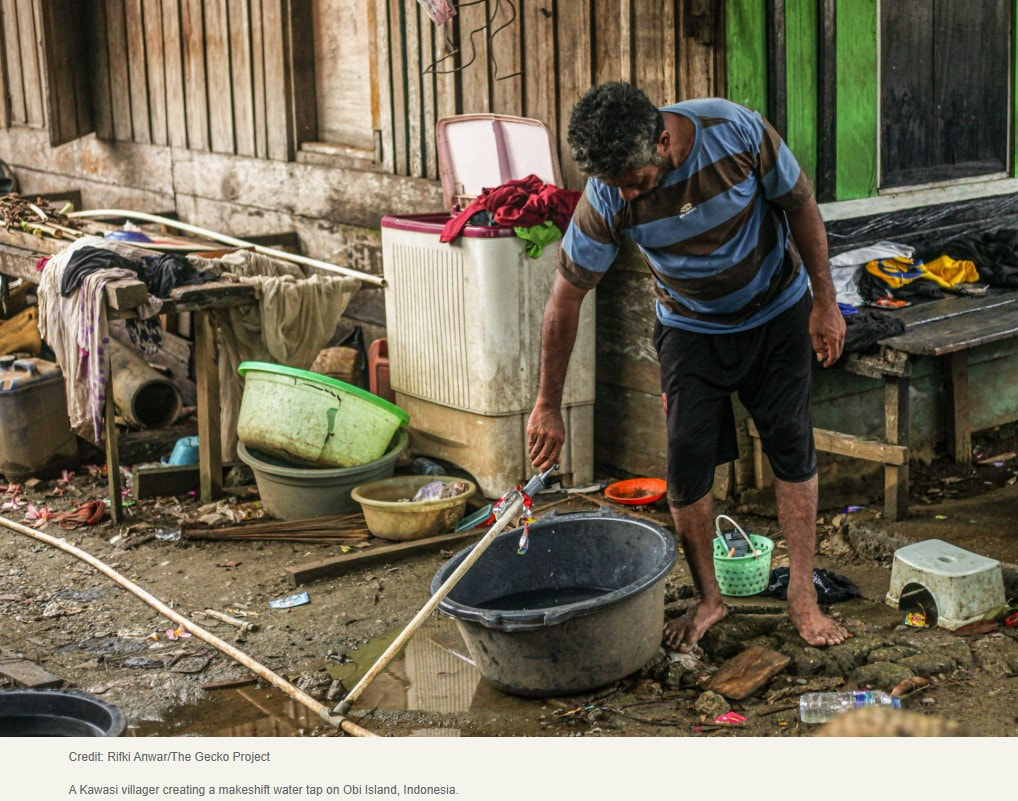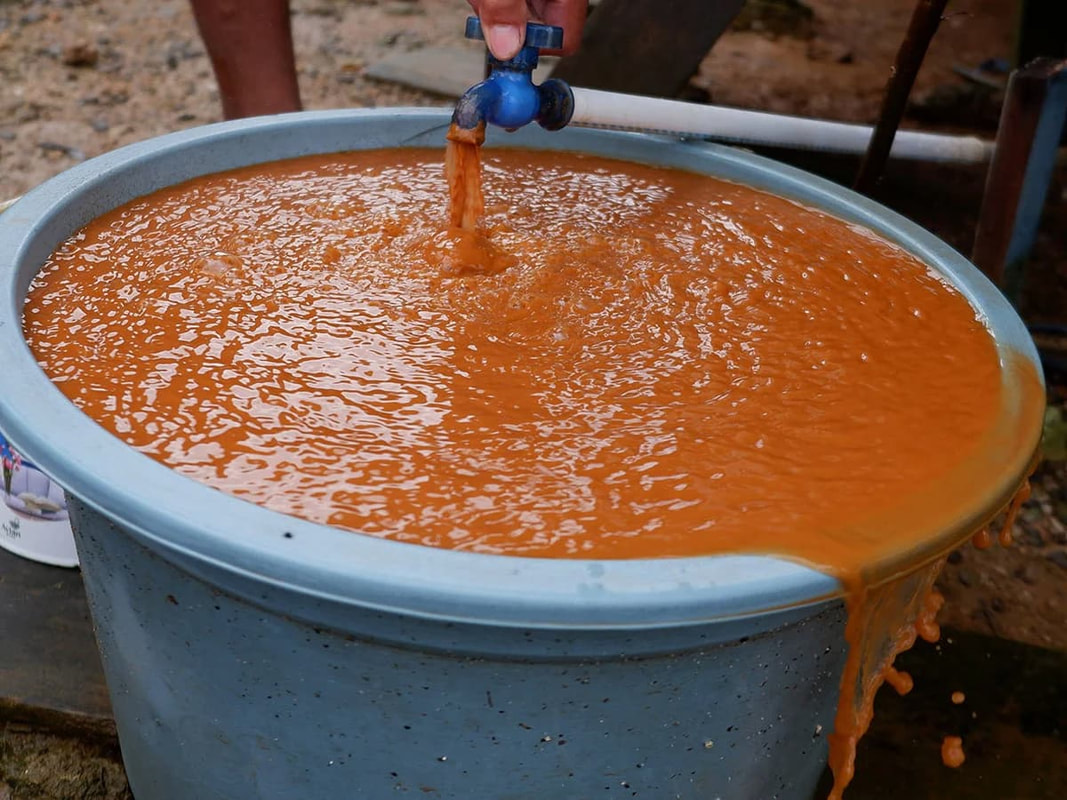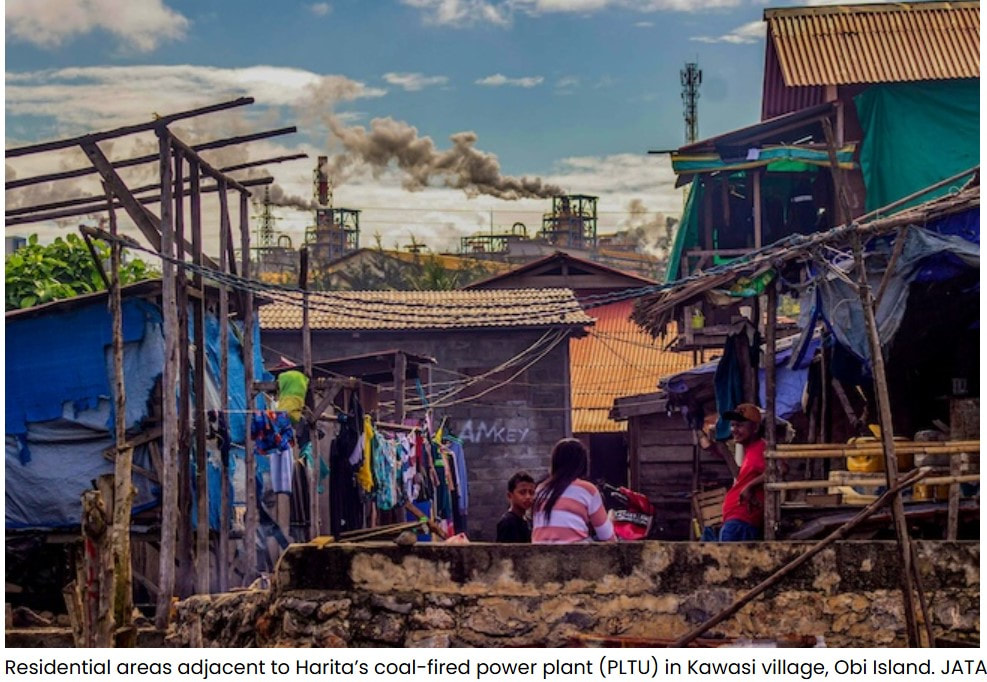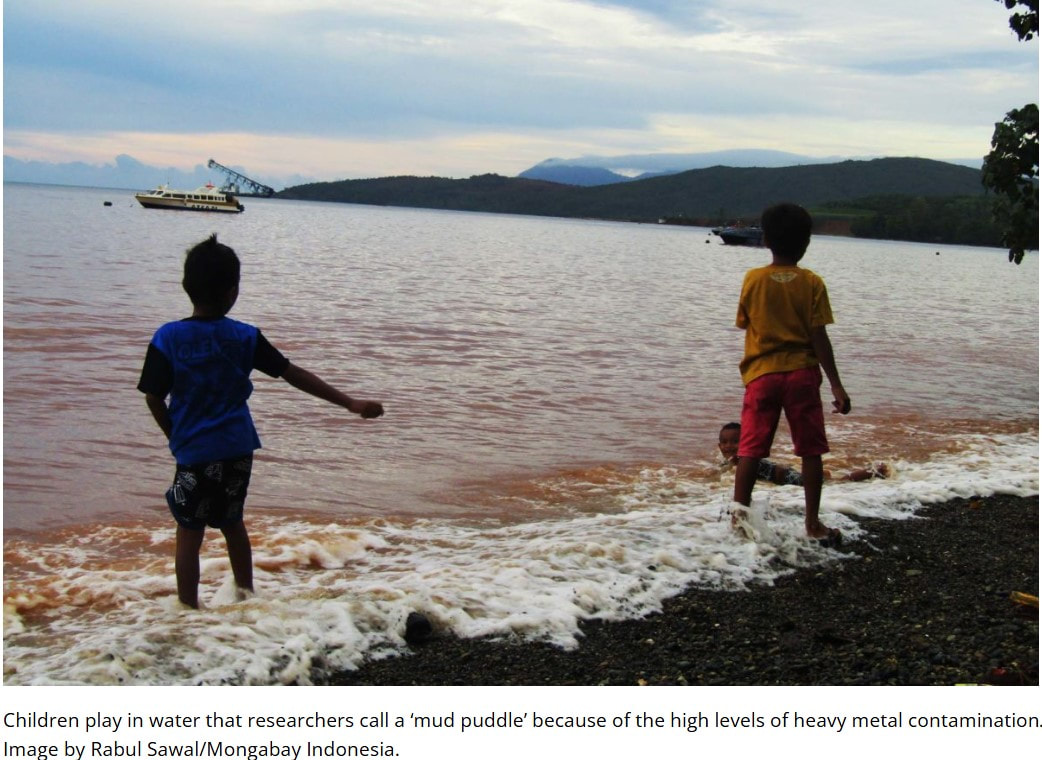18.05.2025
Long-Term Contamination at Indonesia’s Harita Nickel Mine
A sweeping international investigation has uncovered that the Harita Group, a leading supplier in the EV battery market, knowingly operated for over a decade while chromium-6--a carcinogenic chemical—persistently polluted local water sources on Obi Island, Indonesia. The chemical, made infamous by the film Erin Brockovich, is linked to serious health conditions, including cancer and organ damage. Residents near Harita’s mining site in the village of Kawasi report stomach pain, coughing up blood, and continued dependence on the contaminated spring, with no warning issued by the company. Leaked documents seen suggest a source of drinking water close to a $1bn (£800m) mining project owned by the Indonesia-based Harita Group on remote Obi Island, was contaminated with unsafe levels of hexavalent chromium (Cr6), the cancer-causing chemical more widely known for its role in the Erin Brockovich story and film. Cr6 can cause liver damage, reproductive problems and developmental harm when ingested or inhaled. Long-term exposure through drinking water has also been linked to stomach cancer. Evidence has shown that Cr6 in drinking water can be a result of industrial processes. For the 2022 investigation, water samples collected from a spring in the village of Kawasi, less than 200 metres from the mining site, were tested at government-certified laboratories and suggested high levels of contamination from carcinogenic Cr6 of 60 parts per billion (ppb). The maximum contaminant level allowed by law in Indonesia is 50ppb. Indonesia has become the world's largest supplier of nickel, accounting for nearly 60% of global output. Six percent of that comes from Kawasi, whose residents no longer live in a pristine village, but in the shadow of an industrial city.
Credit: Planet A / DW
Credit: Planet A / DW
Poverty deprives people of adequate education, health care and of life's most basic necessities- safe living conditions (including clean air and clean drinking water) and an adequate food supply. The developed (industrialized) countries today account for roughly 20 percent of the world's population but control about 80 percent of the world's wealth.
Poverty and pollution seem to operate in a vicious cycle that, so far, has been hard to break. Even in the developed nations, the gap between the rich and the poor is evident in their respective social and environmental conditions.
Poverty and pollution seem to operate in a vicious cycle that, so far, has been hard to break. Even in the developed nations, the gap between the rich and the poor is evident in their respective social and environmental conditions.
